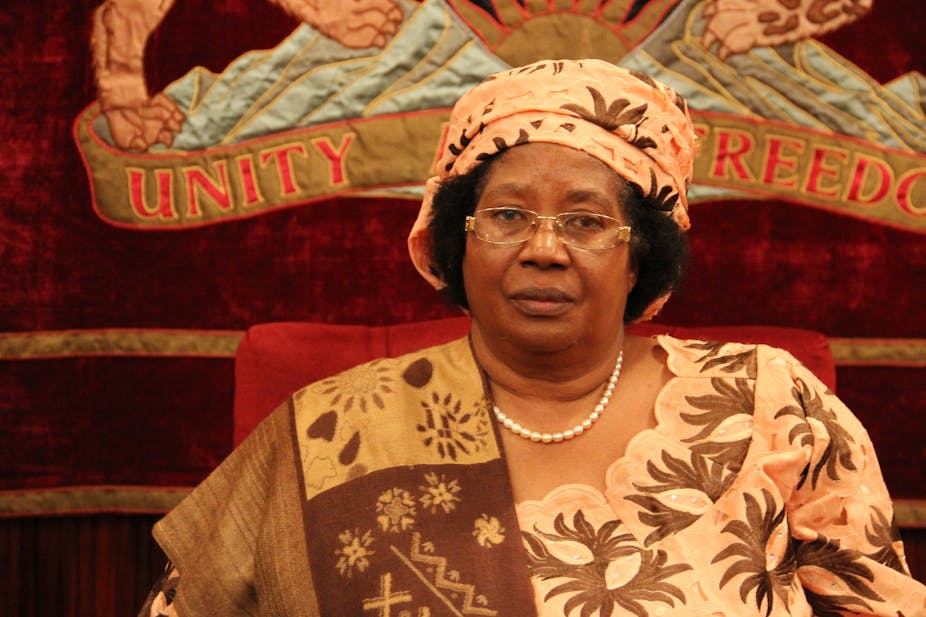Like many aid-dependent countries in the developing world, Malawi cannot balance its books without donor support, which makes up as much as 40% of the national budget. Yet because of the ongoing nightmare of an unprecedented corruption scandal, known as “Cashgate”, it faces a massive suspension of aid directly to its government.
In the face of that financial nightmare, Malawi has announced a “zero-aid budget” for 2014/15, an attempt to win back the trust of major donors (especially the UK) who do not want to see their money wasted. The cuts mean many vital public services face a deeply uncertain year in a country whose GDP per capita is only $226 per head. How did it come to this?
A shot in the dark
Cashgate broke into the public domain in a dramatic fashion with an assassination attempt on former budget director Paul Mphwiyo in front of his mansion in September 2013.
There are two competing narratives of the events that led to the shooting: in one, favoured by the former president, Joyce Banda, Mphwiyo was shot because he was championing a crusade against corruption in the public sector. In the other, his shooting was a result of a corrupt deal turned sour.
Whatever the real motive behind it, Mphwiyo’s shooting opened a terrible can of worms. Huge sums of money, in both local and foreign currency, started showing up in unlikely places; civil servants and businessmen were caught with huge stashes of hard cash in car trunks, under mattresses and in the ceilings of their houses.
The speculation is that as budget director, Mphwiyo was at the centre of the misdeeds Cashgate exposed. He is now answering charges of money laundering to the tune of 2.1 billion kwacha (US$ 4.4m) – and such was the extent of the scandal that then-president Joyce Banda was forced to fire her entire cabinet in October 2013. Many of them were subsequently arrested.
A terrible cost
The plundering of public resources is hardly unheard of in Malawi – but still, the scale of Cashgate was a great shock. The anomalies exposed by a forensic audit commissioned by the government of Malawi, with support from the UK’s Department for International Development, were colossal.
According to the report, as much as 20 billion kwacha (about US$42m) disappeared from government coffers in less than a year through a systematic plunder of public resources, where politicians and businessmen connived with civil servants to skim millions of kwacha in payment for ghost goods and services.
Just to put the size of the scandal in perspective, payments to banks without details of beneficiaries amounted to 2 billion kwacha (US$4m); payments not supported with liquidation documents amounted to 3 billion kwacha (US$6.2m); payments for procurement without internal procurement committee’s authority amounted to 6 billion kwacha (US$12m); and payments made outside the central payment system amounted to 12 billion kwacha (US$25m) – all this in a country whose GDP is a mere $3.7 billion.
On any measure, Cashgate should not have happened. And in fact, Malawi’s government had long been trying to clean up its act before the scandal hit. On the World Bank’s recommendation, it adopted a new IT-based accounting system to improve the management of public finances. That system failed; inquests have shown that the system was rolled out without putting in place all the necessary prerequisites for it to function effectively and efficiently.
Other decisions made by the Malawi government helped create an environment in which public resources could be brazenly and casually looted. For example, in 2005, the government authorised a consortium of three banks to honour all government cheques at any of their branches for any amount without limit – even when the government was experiencing liquidity constraints. That effectively removed any ceiling on public spending.
Understandably, donors have reacted to Cashgate by withholding budget support to the government – and it is against this backdrop that Malawi is implementing swingeing budget cuts in a desperate attempt to win back donors’ faith. Its attempt to rebuild its aid-dependent finances and international reputation will be a case study not only in contrition, but in how to manage austerity economics in the tightest of constraints.

